Hunter distress signals
What is considered to be the international emergency hunter distress signal?
The International Distress Signal is three signals of any kind - three gunshots or three whistle blasts.
Sound Signals
Whistles and gunshots are your best bet of being found. The sound of a shot often carries farther in the night and early morning when the wind isn't blowing. This is when people are most likely to hear your three shots as a distress signal. Three shots in the middle of the day might be interpreted as someone shooting at games. If you have plenty of ammunition, occasionally repeat the three-shot signal but don't use up your ammunition too quickly.
Sounds from a whistle carry a long way. They are easily interpreted as a distress signal. Whistles are easy to blow, and you won't lose your voice trying to yell for help.
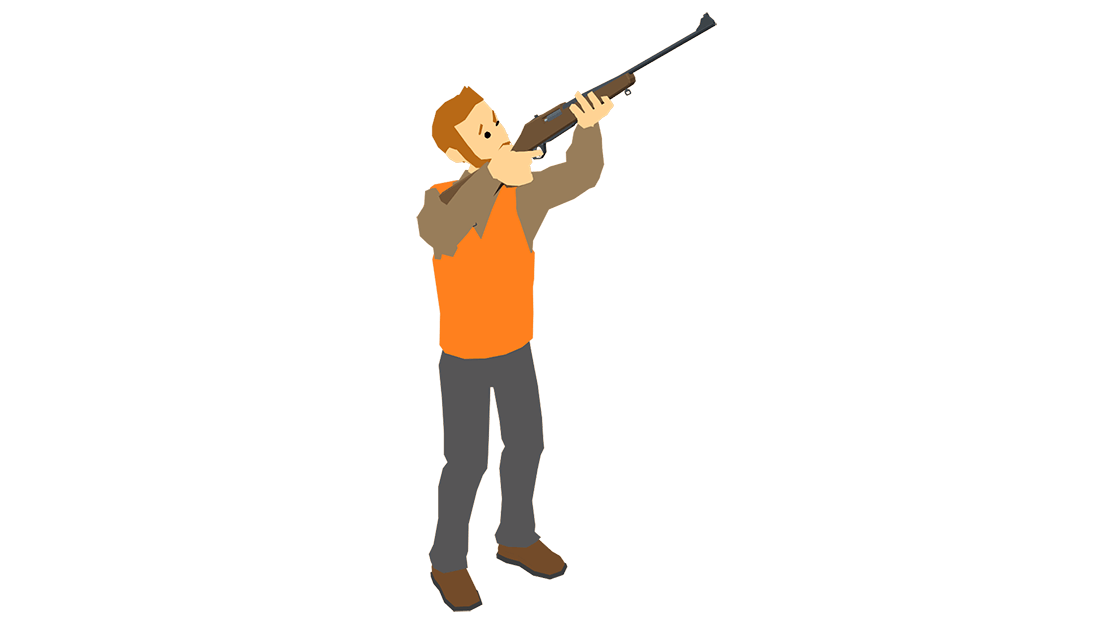
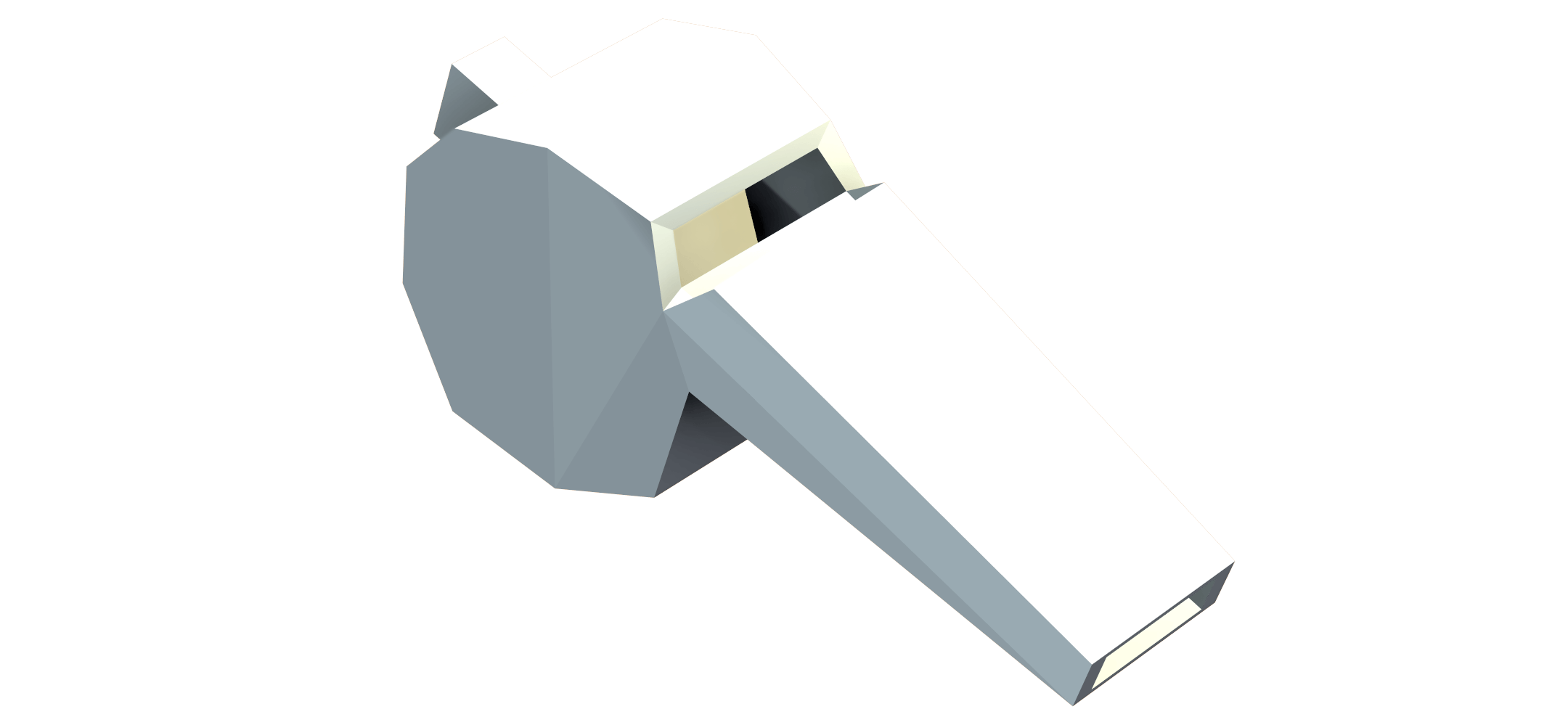
Fire Signals
Making a fire is an excellent distress signal in an open environment. The smoke created can easily be seen by day and the light emitted can easily be seen at night.
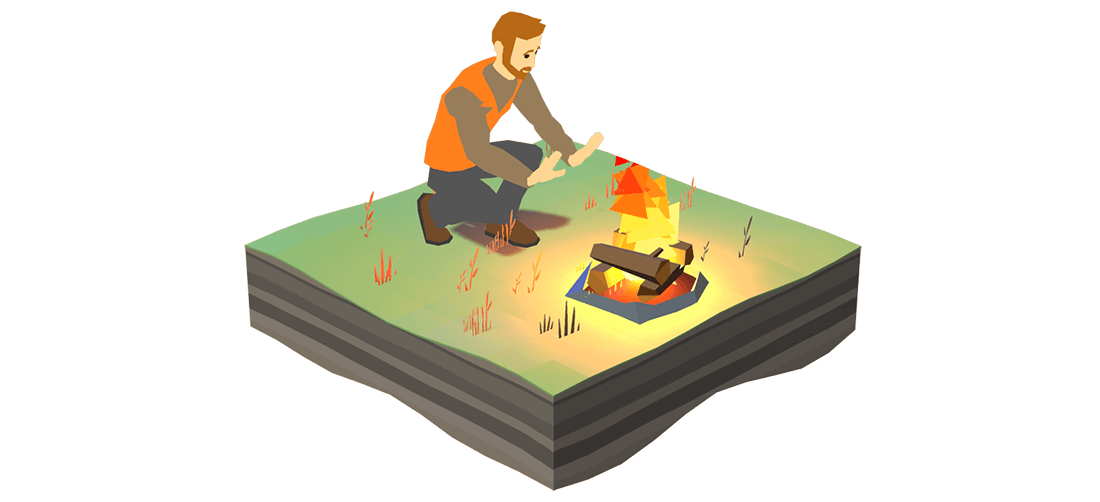
Mirror Signals
A mirror can be used as an excellent survival tool. Easily reflecting light, mirrors can be used to emit a distress signal seen from afar.
Information Signals
Marking a large X on the ground or creating an SOS sign will help rescuers or pilots spot you from the air. It is recommended to stay in the same place until you are found. If you decide to move, draw arrows on the ground to show in which direction you are moving. If you have neon tape, you can also mark your way.
Food and Water
After making yourself comfortable and easier for searchers to find, your second responsibility is to yourself. Obtaining food and water will help pass the time and keep you in good condition. Berries are a good source of protein and energy. Grouse, rabbits, and small game animals, bird eggs or fish often can be found close to camp. Many hunters carry a chocolate bar or two with them when they set off on a hunt. Don't worry if you can't find food and water before dark. You can survive several days without food and water if you have to.
Remember: Having survived a night in the woods, you can either proceed to walk out to a known landmark, or stay put and depend on searchers to find you. Unless you know where you're going, it's best to stay put.
Treating Medical Emergencies

First aid skills are necessary in any emergency situation. It requires professional training to ensure the most positive outcome. It is strongly recommended that all Hunter Education Students enroll in a recognized first aid course. First aid skills could very well save a person's life while in the field.
Scene assessment
If you find an injured person, it is important to ask them where they are injured and how the injury occurred. Try to understand the cause of the injury. Make sure that the environment in which they are in is safe. If you are not sure that the scene is safe do not approach the injured person. Keep them calm by talking to them and reassuring them that you are there to help. Protect the person from the sun, rain, and wind. Let them know that help is on the way.
Cuts and bleeding
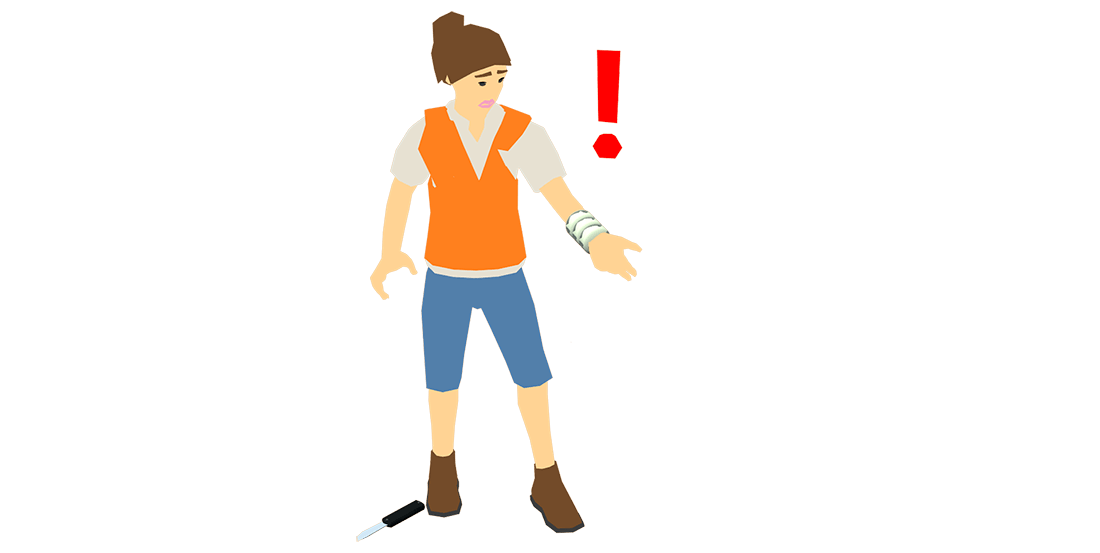
Most bleeding situations are caused by cuts. The best way to stop a cut from bleeding is by firmly applying pressure over the wound with a cloth or piece of clothing for a few minutes. However, if the cut is deep do not release the pressure because the bleeding will start again. If the injury is to the leg or arm keep it elevated.
Remember RED
Rest - Elevate - Direct pressure
Embedded objects
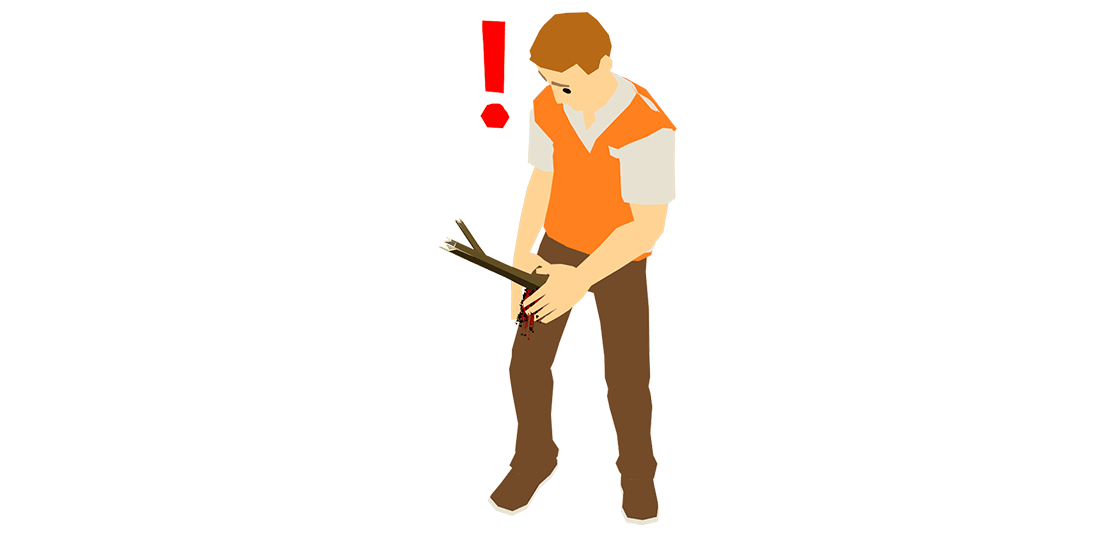
Do not remove any embedded objects as it could lead to an even more serious injury. Pad the wound around the object firmly and go to the nearest hospital.
Across the U.S. qualified people teach first aid. We strongly recommend you take a Red Cross or other recognized first aid course.
Broken bones

Hunting requires a lot of physical activity. Sometimes accidents, like broken bones, may happen.
- If necessary, stop any bleeding by applying pressure to the wound using a clean cloth, piece of clothing or bandage.
- Immobilize the injured area using a splint if possible.
- If available, administer anti inflammatories such as Ibuprofen to reduce swelling and pain.
- Get medical help as soon as possible
- Keep the victim calm, reassure them that help is on the way
- Keep them alert and stay with them until medical assistance arrives
Heart attacks
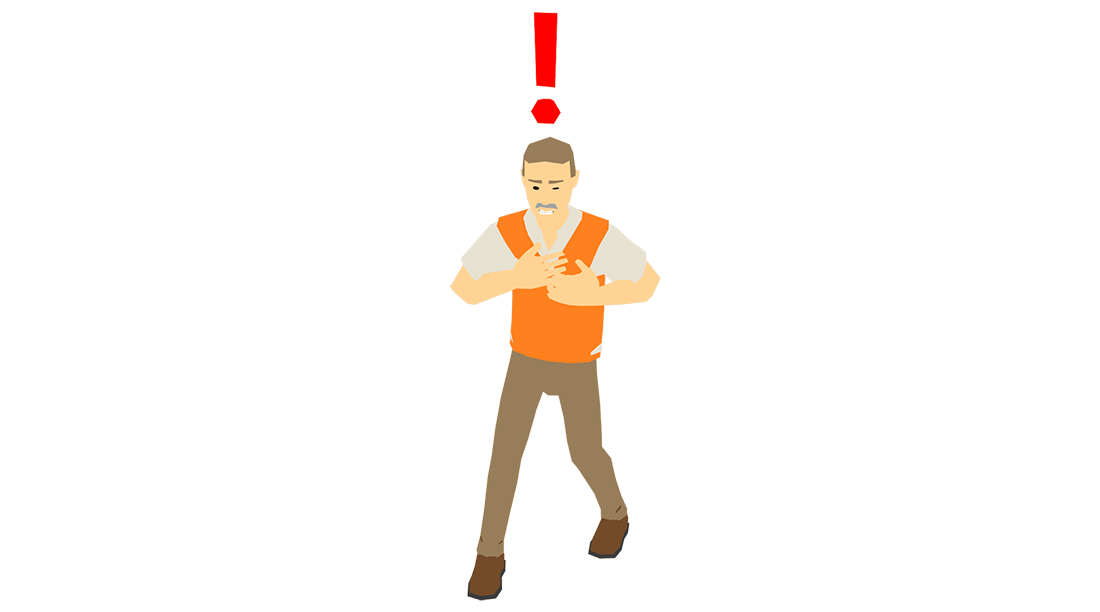
A heart attack occurs when there is an obstruction of an artery. This blocks the flow of oxygen rich blood to the heart. If you witness someone in a heart attack situation:
- Call 911 immediately. Don't ignore the symptoms of a heart attack. Go to the nearest hospital. Don't let the person who is having a heart attack drive themselves. If you are the victim, only drive yourself if you have no other option.
- Chew and swallow an aspirin. Aspirin helps keep your blood from clotting. This is considered early intervention while waiting for help. It also helps limit the damage to your heart.
- In the event you find someone unconscious: Begin CPR immediately (cardiopulmonary resuscitation). If the person isn't breathing or you don't find a pulse, continue CPR to keep blood flowing after you call for emergency medical help. CPR doesn't restart the heart; but it keeps the person alive until medical help arrives.
Drowning
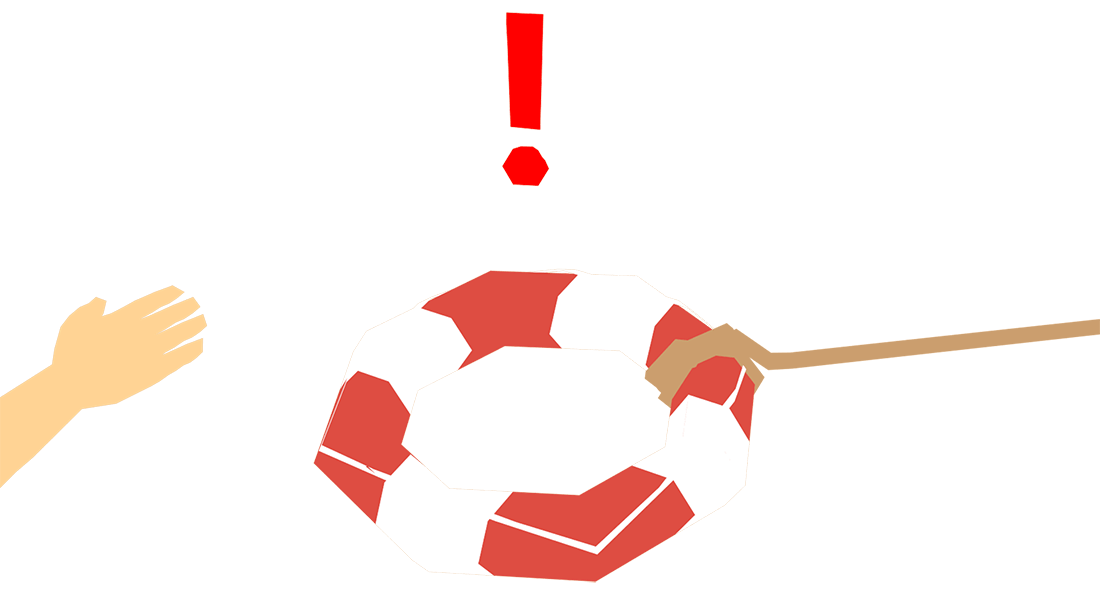
While hunting there may be situations where you require a boat to get to your favorite hunting spot, transport game, or maybe to hunt migratory game birds. Although useful, they increase the risk of drowning accidents. In the event you witness a drowning victim:
- Call 911 Immediately
- Move the person out and away from the water
- Check to see if the person is breathing
- If the person is not breathing, check for a pulse
- If you cannot find a pulse begin CPR
Repeat until help arrives or the person begins to breath
Burns
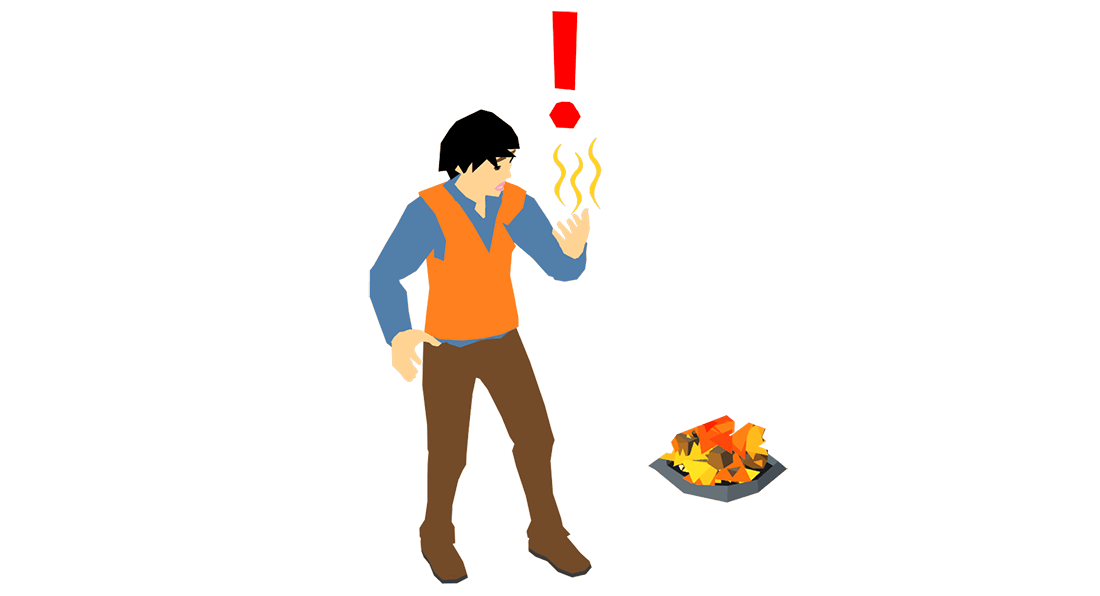
If you or one of your hunting partners suffer a burn, here are steps to treat the wound:
- Cool the burn. Place the burned area under cool (not cold) running water or gently apply a cool, wet compress until the pain eases
- Remove rings or other tight items from the burned area
- Don't break any blisters. Blisters help protect against infection
- Apply lotion such as one with aloe vera. This helps prevent drying
- Bandage the burn. Cover the burn with a clean bandage.
- If needed, take a nonprescription pain reliever
Snake bites
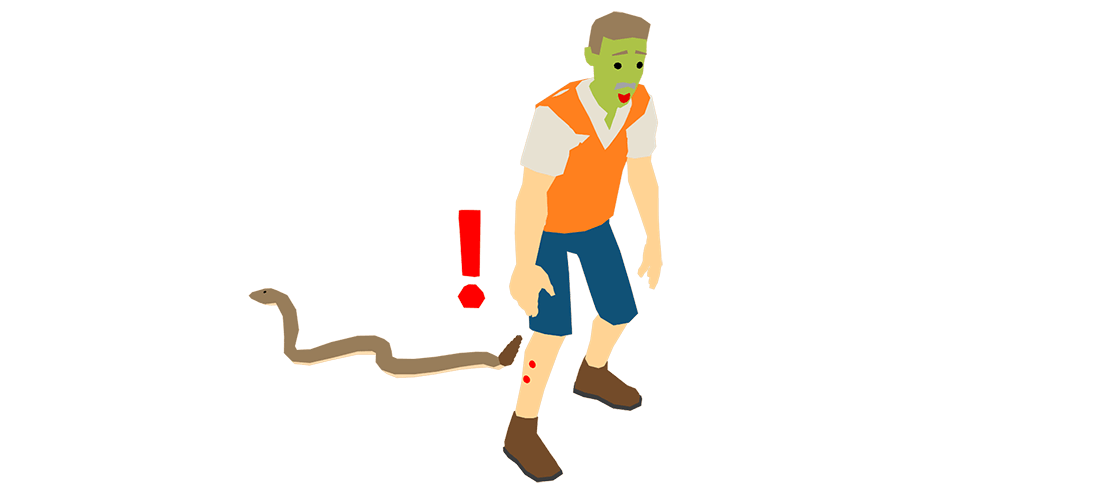
Snake bites should always be taken seriously, if not treated carefully and quickly, they can result in death.
- Call 911 immediately, get help as soon as you can, because even if the bite isn’t that painful initially, you still need to treat it as if it’s potentially life-threatening.
- Wash the bite with soap and water.
- Keep the affected area still and lower than the heart in order to slow the spread of venom.
- Remove any jewelry or watches.
- Remain still and calm. Moving around will cause the venom to spread faster through the body.
- Cover the bite with a clean, dry bandage.